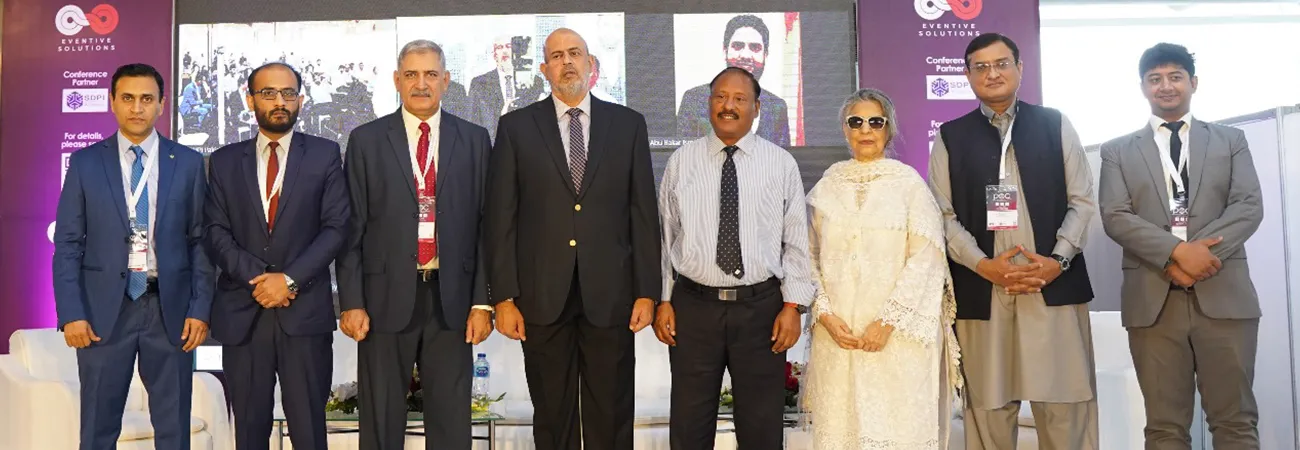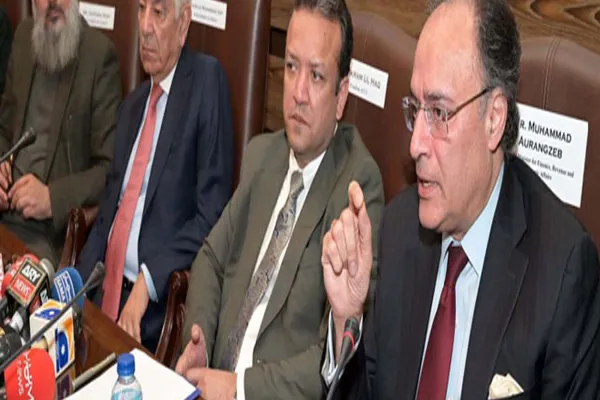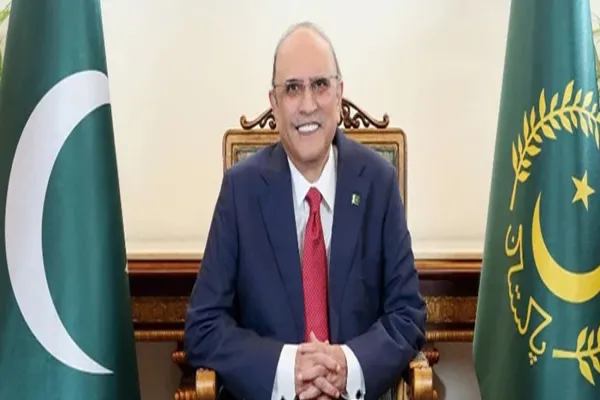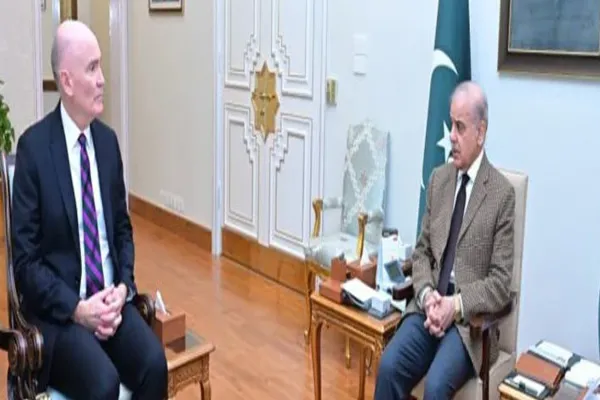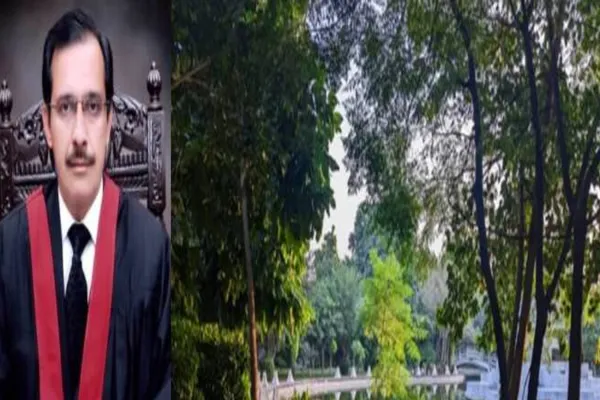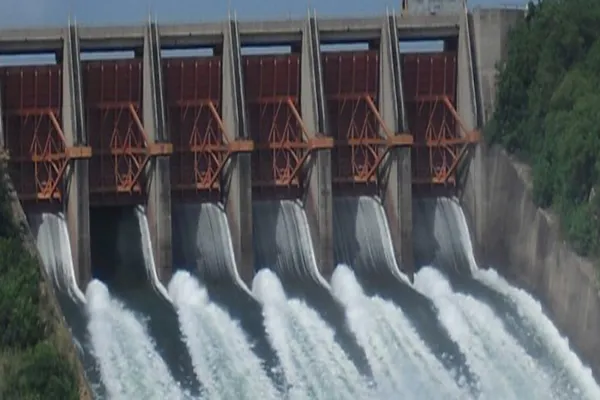i NEWS PAKISTAN
“Promoting energy affordability for export sector through regionally competitive tariffs, boosting investments for a reliable energy supply and transmission system, and increasing access are critical factors for boost economic growth in current challenging times” said Chairman NEPRA, Waseem Mukhtar. He was addressing Pakistan Energy Conference jointly organized by Sustainable Development Policy Institute and Eventive Solutions here today.
The conference aimed at exploring policy solutions and map out a viable way-forward to promote renewable energy transition in Pakistan under worsening global and national energy inflation for sustainable economic development and provide relief to public from external price shocks. The conference was widely attended by experts from public and private sector working in the area of renewable energy in Pakistan.
Speaking at the conference, Chairman NEPRA remarked that the sector’s success depends on three factors i.e., reliability, affordability, and accessibility. Without. He further stressed the improvement of the forecast mechanisms to ensure return-on-investments for renewable energy projects.
“We are confronting a poly-crisis globally and at domestic level there is pressing need for innovative solutions to achieve a balance between soaring energy prices and capacity payment issues to alleviate some of the sufferings of the public”, said Dr Abid Qaiyum Suleri, Executive Director, SDPI.
He alarmed that global oil prices are expected to rise further influenced by OPEC countries refusing to increase production and other international conflicts. Under these conditions, Pakistan’s energy bill has increased exponentially leading up to current energy price inflation, limiting government’s subsidy cushion, making transition to renewable energy even more significant, he stressed.
Romina Khurshid Alam, Former SAPM, remarked that “clean and affordable energy is a catalyst for economic and social progress. Yet over 50 million Pakistanis still lack access, and the situation is only getting worse”. She stressed that there is an immediate need for implementation of solar & wind projects through competitive bidding and urged for tapping in the Green Climate Fund to catalyze the national level energy transition projects.
She further emphasized the need to scale up off-grid systems to address social challenges and increase energy access for marginalized communities. “Government has issued regulators guidelines to ensure regulatory policies are formulated after stakeholder consultation and promote out of box solutions” said Zulfiqar Ali, Director General, Board of Investment. He further elucidated that the Government of Pakistan is bringing Asaan Karobaar Program under which National Regulatory Delivery Office (NRDO) is being developed to support investments from private sector.
Muhammad Ayub, Former Deputy Managing Director, NTDC, suggested integrating wind energy on low load areas like South Punjab and improving transmission from such points to high-demand areas to prevent transmission losses. He urged the government to focus on indigenizing manufacturing of Solar PVs, inverters etc. to lower technology cost and import dependence and introducing hybrid renewable energy technologies in areas with low wind pressure to scale up the integration of wind in renewable energy.
Roohi Khan, Chairperson, Board of Directors of SNGPL urged the government to focus on technology transfer and concessional financing for indigenous manufacturing of renewable energy technologies. Improving planning, risk management, sensitivity, and cost analysis for renewable energy projects especially winds to ensure projects financial viability are critical measures to mitigate the current challenges hampering the expansion of renewable energy transition, she added.
Irfan Ahmed, Advisor, Energy Update stressed on addressing seasonal demand fluctuations, insufficient network capacity to accommodate generated wind power, and sudden changes in system load due to abnormal weather conditions to maximize the potential of wind energy in Pakistan and ensuring efficient utilization. He also stressed empowering provinces to manage renewable energy distribution, ensuring local alignment with needs and resources.
Ubaid ur Rehman Zia, Lead Energy Unit, SDPI highlighted that Pakistan must make this transition as it makes a much better economic case, the cheapest source of energy in Pakistan. He mentioned a dire need to address inconsistencies in energy policy targets, unlocking private finance, addressing delays in project developments, market and infrastructure barriers, and bringing on-grid solutions at the forefront for rural electrification.
Dr Khalid Waleed, Research Fellow, Energy Unit, SDPI stressed on enhancing transmission systems for seamless wind energy integration following best practices of countries like Denmark, boosting investment in transmission and renewable energy by offering incentives and conducive policy ecosystem, promoting innovations like off-grid solutions, and charging electric vehicles with wind energy. He further said that technical challenges like recent blackouts can effectively be mitigated by modernizing the grid and transmission system with artificial intelligence and Internet of Things, something that the government must focus on.
Jawwad A. Latif, Member WAPDA, shedding light on WAPDA ambitious efforts informed that WAPDA aim to scale up renewable energy generation capacity to 12,666 MW by 2025 and 20,591 MW by 2028, which will increase access and reduce cost. Sharing progress on ongoing projects he informed that by 2026, WAPDA aims to complete projects worth Rs2600 Billion.
For these projects, “government has to allocate only 25% of the finances while 75% funding will be arranged by WAPDA in equities through local and foreign banks”. He informed that “WAPDA has successfully floated green euro bonds in the London Stock Exchange and US$500 Million towards these transformative projects have already been secured.
Credit: Independent News Pakistan (INP)



